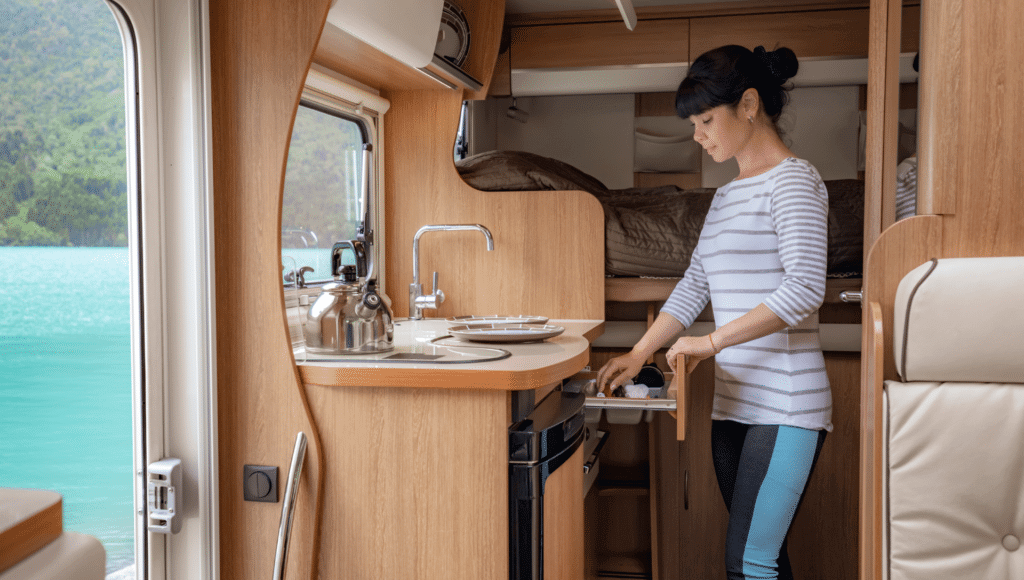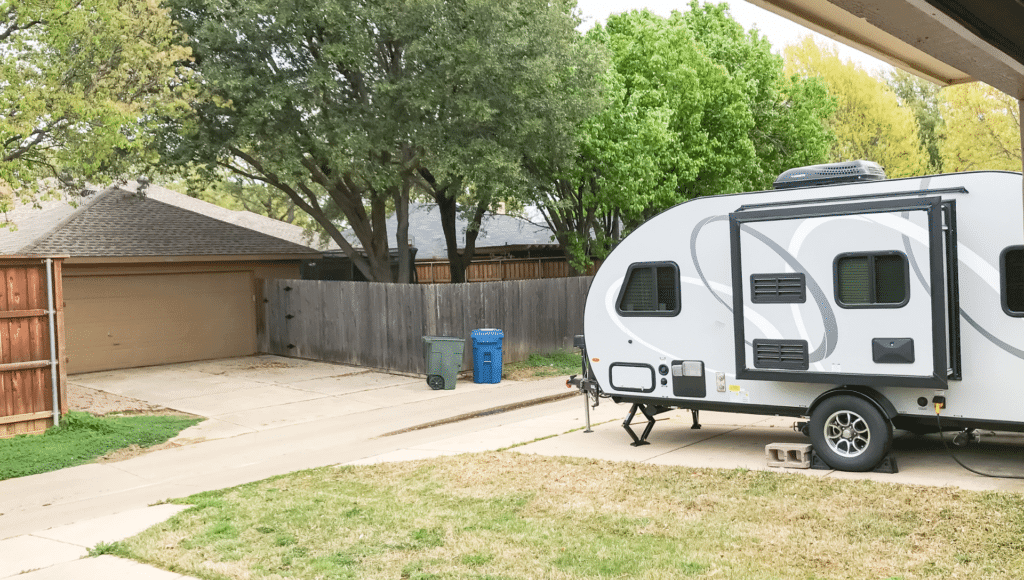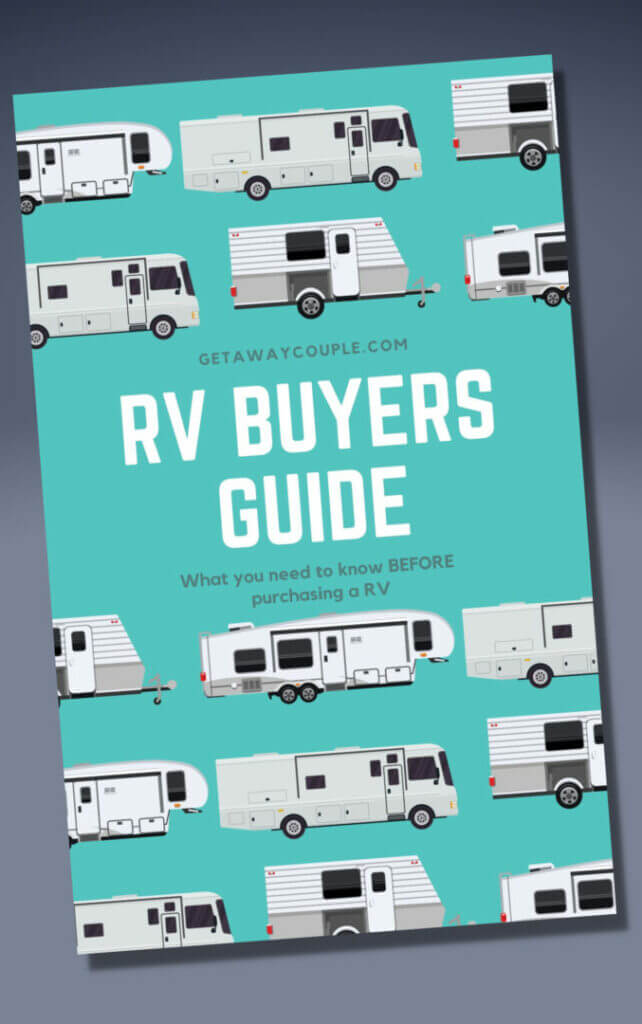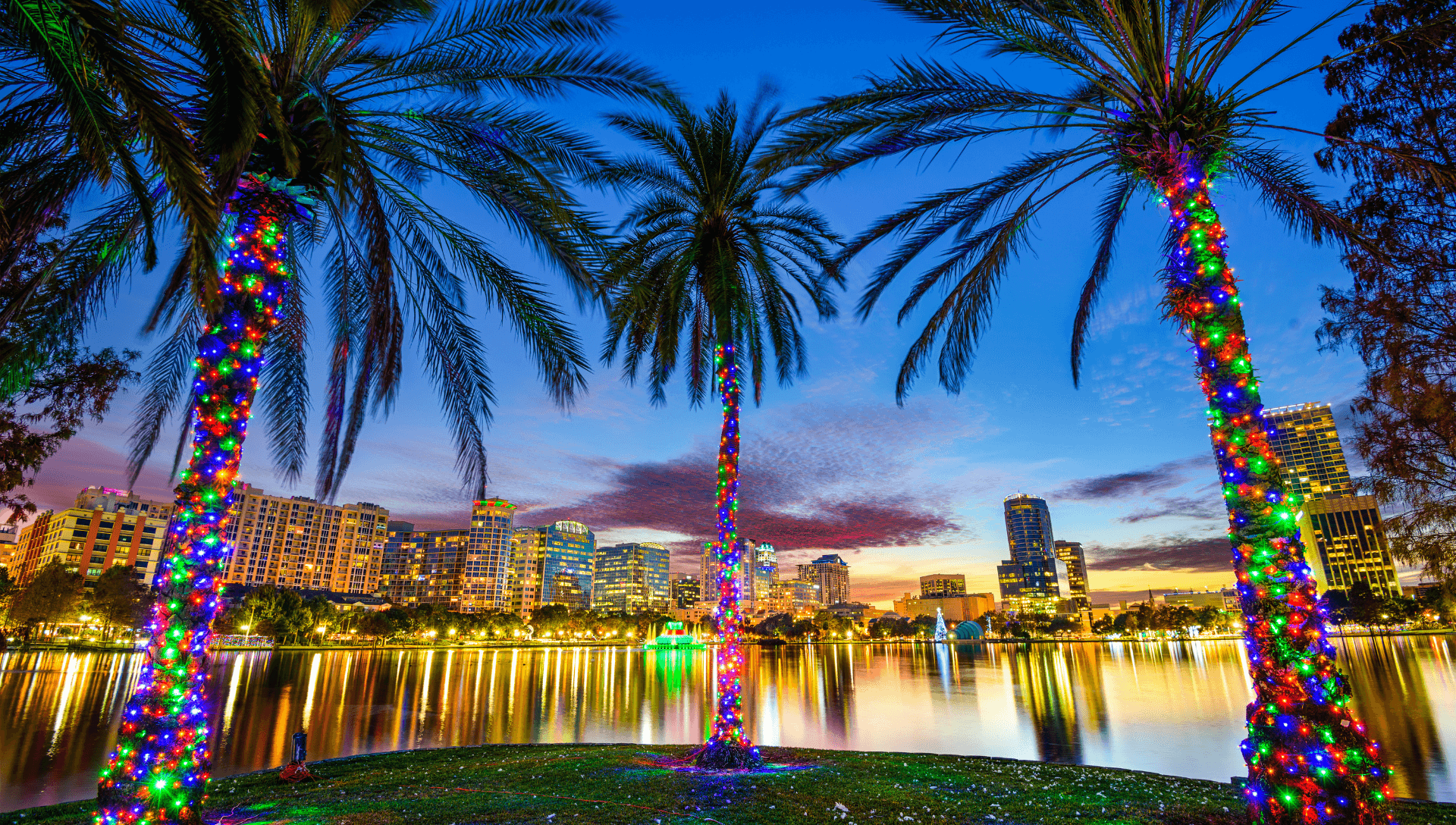Table of Contents Show
Purchasing an RV is an exciting, exhausting, and exhilarating prospect. Before you make your RV purchase, you should consider these 10 items to help you make a wise decision. Once you’ve thought about all of these topics, you’re ready to deal with the marketplace and get exactly what you want from your RV purchase.
Budget
Set a budget. This is not just a suggestion but do the math. How much do you want to spend per month on the payments? How many years do you want to pay, which will impact the amount of interest you will pay? When calculating how much money you have to spend each month, keep in mind insurance, a savings fund for breakdowns, camping, and gas expenses. Take the number you want to spend on the payments with you at the RV store or know the total you won’t go over if doing a private sale. Check out the 6 Keys to Success When You Buy a Used RV.
Size Requirements
What do you want to do with your RV? Some places have restrictions on the size of an RV that can stay at their campground. There will be more parking and overnight options for a smaller rig. However, if you have a larger family, you probably will need to have a big RV to have enough space for everyone. When considering which RV would be the best fit for you, think about what you need for features in the RV, like a separate shower or an oven. The more features, the more likely the larger the rig will be. Floor plans are great to look at but find something you like and get the feel for space with everyone in it.

Passenger Requirements
It’s great to have the two captain’s chairs in the front of a Class A RV, but if you have children or other passengers, you will need to take that into consideration when searching for your RV. Each seat should have one seat belt per person for driving down the road. Some states say that sitting at dining tables don’t require a seat belt, but for safety, seat belts are important.
If you want to drive a van or Class B RV, but plan to take friends along, make sure there are extra seats. If towing, use an eight-passenger van or a truck with an extended cab for more seating.
Ongoing Costs
There are costs that are going to come up yearly, monthly, and sometimes daily with the RV you purchase. You will be required to register the RV, pay insurance on it yearly, and don’t forget the monthly payment if you financed it. If you tow a vehicle or use a vehicle to haul your RV, you may have payments on that as well.
Maintenance and repairs suck up money. As you drive your rig down the road, it is said that it’s like a mini earthquake. With that kind of motion, there are bound to be issues. Have a savings account to cover things like tires, wires, and leaks.
As an RVer, you will most likely have to pay to stay overnight in campgrounds or state parks. If you’re savvy with finding the Bureau of Land Management (BLM) land, you can stay for free.
Also, set aside money for having fun and sightseeing in the areas you’re camping in. Finally, don’t forget the gas, washer fluid, oil, and propane, you will need to constantly fill as it is used.
Licensing Requirements
Most states do not require you to have a special Commercial Drivers License (CDL) to drive an RV. However, if you are driving an RV over 26,000 pounds or towing over 10,000 pounds, you do need a special non-commercial license in some states. Only Hawaii and Washington DC require CDLs for rigs over 26,000 pounds. Make sure you know the rules where you will be driving, especially if your motorhome or trailer exceeds the weight limits.
Storage Requirements
Everyone dreads culling their memories to go live in an RV full time. Downsizing is so hard, but storage in an RV is valuable. Some rigs have a good amount and others require clever planning. What will you need? If you have sticks and bricks home, you only need storage for what you will bring on your trip. Do you plan on taking everything to full time, except for what you might put in a storage unit? If so you will need more storage. If the back of the unit doesn’t have the space for your lounge chairs, what good is that? Be realistic about what you will bring with you and if it will fit in the RV you purchase.
Maintenance
RV maintenance is a necessary evil. The more routine maintenance you do, the less catastrophic issues you will have to deal with. There is a different upkeep schedule for diesel and gas motorhomes. Diesel engines have the oil changed less regularly than gas engines.
It is your job to keep tabs on the roof and anywhere the seals might be weakening.
Maintenance will be one of the largest non-recurring expenses you will have. Set a schedule and save money on a monthly basis to add to the fund for when you need it.
Storage
Think about where you will keep your RV when you’re not using it. Some people are lucky enough to have a spot next to their stick and brick house, while others have to store it at a storage facility. Those who park at home can put in a 30 amp or 50 amp outlet to have power all the time. An outside storage facility could cost up to $2,500 for the year to keep your RV safe. There are also places that will store your RV inside in a private garage. That will cost a lot more, and for some, that’s worth the money.

Resale Value
When shopping online for RVs, consider what people are getting when they resell their RVs. Class B RVs tend to hold their value more and are in demand, which makes the resale value greater. Older RVs don’t hold their value. After a certain age, the best you can hope for is to get a partial down payment on another unit.
Think about how long you want to keep the RV you’re buying. Resale value can still be decent if you trade it in or sell it outright after only a few years.
Facilities
Consider where you want to camp. Do you see yourself boondocking off the grid, staying in National and State Parks, or relaxing in an RV resort? The size of your RV can influence where you can stay and which units get the best sites. If you’re over 40 feet long, your camping options may be limited in certain camping areas.
Where you stay can also be determined by what you have onboard the rig you choose. If you have a camper van, but there is no toilet, you’ll want to have a campsite that is near the bathrooms. Make sure the facility you pick has what you need.
Also, keep in mind the age of the RV you purchase, because some places will not allow RVs older than 10 years old to stay at their campgrounds. Converted buses and self-builds also might have a difficult time at some resorts. So, plan accordingly.
Happy hunting.
Get Your Free RV Buyers Guide Today!

This valuable ebook will guide you step-by-step on how to purchase your first RV and save up to 30% off MSRP! Sign up for your FREE guide today!






